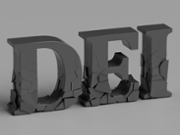|
|
|
|
 |
| (Metamorworks/Getty Images) |
The changes created by AI demand leaders who are willing to adopt a Renaissance mindset that prioritizes adaptability, creativity and the integration of human-centric qualities, such as imagination and empathy, alongside analytical skills, writes Jeff DeGraff, a professor at the University of Michigan's Ross School of Business. Such leaders know how to build relationships in a fragmented world, act when times are competitive and blend analysis and empathy in times of uncertainty, DeGraff writes.
|
|
Put it into practice: Success in the age of AI requires leaders to develop four interconnected types of intelligence: analytical, visionary, relational and competitive, DeGraff writes. "AI has transformed our world, but it has also clarified something timeless: No single type of intelligence is enough."
|
|
|
|
|
Elevate your leadership impact with ATD and Penn GSE's Talent Development Executive Certificate. Designed for senior L&D professionals, this program blends academic rigor and real-world application to prepare you for the challenges of the C-suite. Register now » |
|
|
|
| ADVERTISEMENT |  |
|
 
| |
 |
| (Just_Super/Getty Images) |
Diversity, equity and inclusion have been a corporate buzzword, but with initiatives under threat from the government, Ben Ralston, the CEO of The Sachs Foundation, argues that leaders must uphold inclusivity as a moral obligation and require clear commitments instead of superficial compliance. "We will likely make more progress if we stop discussing the acronym altogether and start debating the values," Ralston notes.
|
|
Put it into practice: Question your company's commitment to equity by asking if you should strive for it, if you're already equitable and how you can be more so, Ralston writes. "Make it uncomfortable. Force the discussion. Don't allow quick answers. Require commitment."
|
|
|
|
Don't leave your team confused about who is doing what after a meeting ends, write Karin Hurt and David Dye, who recommend using the last five minutes of a meeting to clarify decisions and assign tasks, and then send an email afterward clearly outlining assignments, ownership and deadlines. "Don't leave ownership in the air. Document it, share it, and reference it next time," they write.
|
|
Put it into practice: Clarify how you will know an assignment is complete, whether it's through an update, a signal or a handoff, and model accountability by telling your team what your next steps will be, as Hurt and Dye suggest. "It's the habit that transforms conversations into progress."
|
|
|
| Free eBooks and Resources |
|
 
| Yesterday's Most Popular Leadership Stories |
|
|
Mellow Mushroom CEO Richard Brasch emphasizes the importance of maintaining the brand's signature free-spirited essence while implementing necessary structures for growth, including remaining a family-run business while many restaurants sell to private equity. "We still set a high standard, still expect performance, but it's a different mindset in terms of valuing the human resources of the company, as opposed to a company that's not family owned," Brasch says.
|
|
|
| |
 |
| (RealPeopleGroup/Getty Images) |
Some decisions, like choosing what to eat for dinner, are easy, but others fill us with dread, such as quitting a job, accepting a new job or making financial decisions, which are the top dreaded activities according to a survey from the University of Zurich. Researchers say they expected health or travel-related fears to be most prevalent, but say the top dreaded decisions have remained stable, even after the COVID-19 pandemic.
|
|
|
| SmartBreak: Question of the Day |
| When actor Arnold Schwarzenegger ran and won the California governorship, who preceded him? |
|
|
| |
 |
| Chellew (Photo credit: Lester Boykin) |
Life sometimes feels like it's a buffet of hard choices -- and according to psychologists, we really hate some of the big ones. In a recent survey of over 4,300 people, the decisions that caused the most collective sweat weren't about health or travel, but career: accepting a new job and quitting a current one topped the list. So, how do you deal when you're staring down one of these dreaded crossroads? First, acknowledge that you're not alone: lots of people your age are worrying about the same things. Second, break it down -- don't think of "changing careers" as one massive leap, but as a few smaller decisions (can I test this role? Do I need a side hustle first?). Third, give yourself a deadline and don't overthink forever -- sometimes just picking a direction is better than getting paralyzed by perfection. And finally, treat this like an experiment: decisions carry risk, sure, but risk can also bring growth. The more you lean into your discomfort, the more choices start to feel like opportunities. If this newsletter helps you, please tell your colleagues, friends or anyone who can benefit. Forward them this email, or send this link. What topics do you see in your daily work that I should know about? Do you have any feedback you'd like to share? Drop me a note. And while you're at it, please send me photos of your pets, your office and where you spend your time off so we can share them. |
|
|
| Got this from a friend? Subscribe now and stay in the loop! |
|
 |
|
| |
| Silence is not an empty void. Silence has a landscape of its own. Silence has its own dimension, a space that enables another way of thinking and being. There is dignity in all forms of communicating. |
Alice Wong,
writer, disability rights activist
1974-2025 |
|
| |
 |
|
|
 
|
|
|
|
|
|
| Copyright © 2025 SmartBrief. All Rights Reserved. A division of Future US LLC. |
| Full 7th Floor, 130 West 42nd Street, New York, NY, 10036. |
|
|
|
|